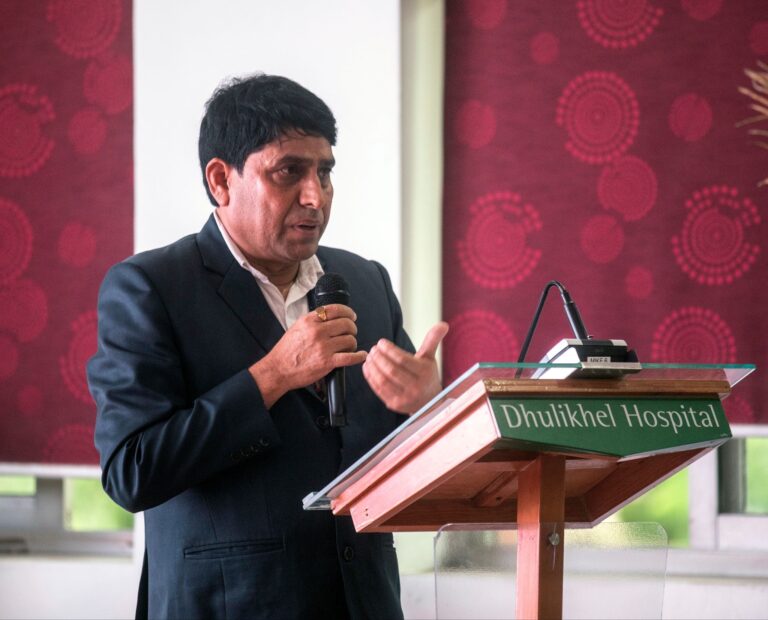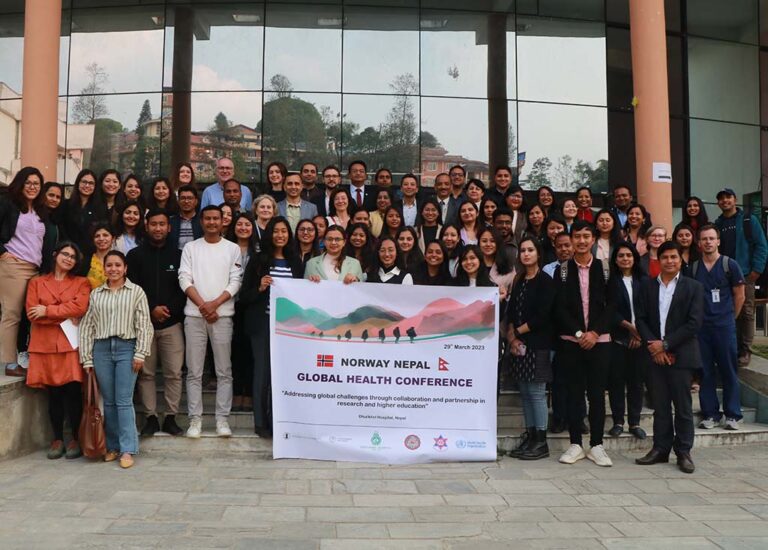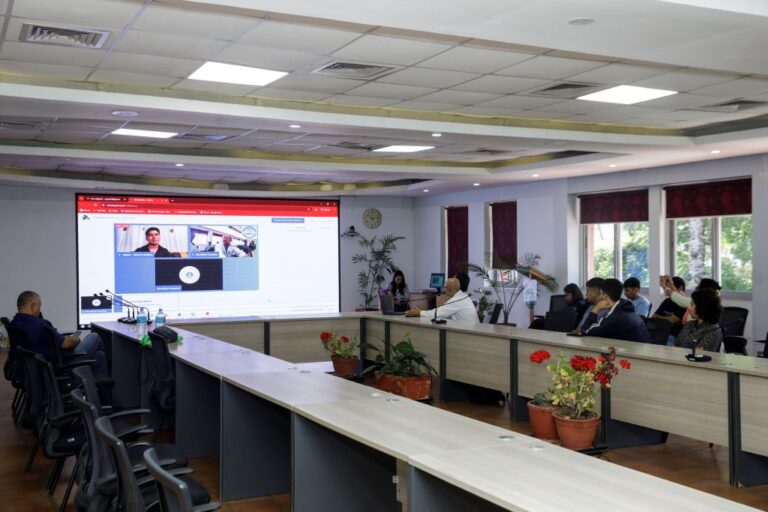Dhulikhel Hospital, Kathmandu University Hospital (DHKUH) has conducted a StandStrong 2 research project in partnership with George Washington University, Yale University, and the University of the Witwatersrand to improve community-level treatment of maternal depression in Nepal through innovative digital technologies. Standstrong 2 was the extension of a pilot study conducted in Chitwan to identify risk factors and provide tailored intervention to young mothers with psychological distress in selected health facilities of Chitwan. The study’s main goal was to provide psychological treatment to mothers using passive sensing technology in low-resource settings of the Kavre district (Dhulikhel, Banepa, Panauti, and Panchkhal Municipalities).
The dissemination program was attended by approximately 60 participants representing different organizations including DHKU
The objective of the dissemination event:
- To share about the Standstrong study, working municipalities, findings of the study, and challenges/learnings.
- To present the results of baseline and endline PHQ survey.
- To discuss the effectiveness of counseling sessions using passive sensing technology among post-partum mothers at a community level.

Activities Performed:
Registration of stakeholders/ members
Before the event, we registered the names and addresses of the concerned stakeholders, media persons, research coordinators, research managers, consultant doctors, nurses, professors, associate professors, and lecturers to record the attendance of the persons in the event.
The Event: Stand strong Findings Sharing Event (July 30, 2023)
Dr. Abha Shrestha, Co-Investigator and Community lead of the study conducted the program. This program was chaired by the Chief of the Kavrepalanchwok District Health Office, Dr. Purushottam Sedhain and other participants include Health coordinator of Dhulikhel municipality, Mr. Sandip K.C, Health coordinator of Banepa, Mr. Shambhu Mahato, Health coordinator of Panauti, Mr. Purushottam Timalsina and Ms. Rina Puri, a representative from Scheer Memorial Adventist Hospital, Banepa, Dr. Shree Krishna Shrestha (IRC Chairperson of Scheer Memorial Hospital) and Dr. Jocelyn Gayares (Consultant Psychiatrist) and Journalists Mr. Madhusudhan Guragain, Mr. Motiram Timalsina

Prof. Dr. Rajeev Shrestha, Principal Investigator of the study and the Chief of Research and Development welcomed all the participants of the program and highlighted the importance of the study.

Prof. Dr. Brandon Kohrt, principal investigator of the study, Center for Global Mental Health Equity, George Washington University has presented the background of the study and the process of the study implementation. Prof. Kohrt highlighted the key elements of the study and the importance of assessing maternal mental health status using sensing technology as a novel tool in the current study and also in the future planned study.


Research Coordinator, Mr. Sujen Man Maharjan presented the background, aims, methods, passive sensing data integration, findings, and challenges in the study. Ms. Puspanjali Puri, the Research Psychologist of the study shared her experiences and case stories of the participants highlighting the impact of this study on the enrolled participants’ personal and social lives.

Discussion:
Following the presentation, the floor was opened for discussion with the participants. The session was facilitated by Prof. Dr. Rajeev Shrestha, Prof. Dr. Brandopn Kohrt, and Prof. Dr. Anjana Dongol. All the queries raised during the discussion were addressed by the study team members including Dr. Rajeev, Dr. Brandon, Dr. Anjana, Dr. Abha, Mr. Sujen, and Ms. Puspanjali. The following few queries were:
- Food practices and postpartum mental health
- Cultural practices and its impact on mental health
- Risk and protective factors based on socio-demographics
- Target groups for the recommendations of the study

Ms. Rojina Bajracharya, a software engineer residing in Banepa shared her postpartum experiences of being a mother. She also suggested that everyone should take care of the mother equally even after the delivery of the baby.

Ms. Maansi Agrawal, an International Corporate Trainer and Communications coach also shared her postpartum experiences. She mentioned how being brought up in a well-educated family, people normalize postpartum depression and nobody understands what the mother is going through.

Closing Remarks:
DHO Chief, Dr. Purushottam Shedain appreciated the contributions made by the Standstrong study to understand postpartum depression.

Vote of Thanks:
Prof. Dr. Anjana Dongol, a study team member concluded the program by presenting her study experiences and extended a vote of thanks to all the participants of the program and study participants.





